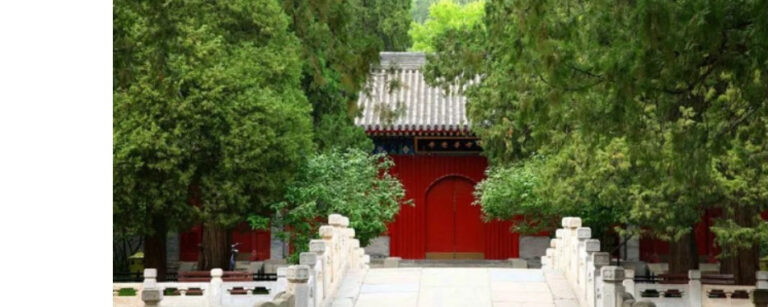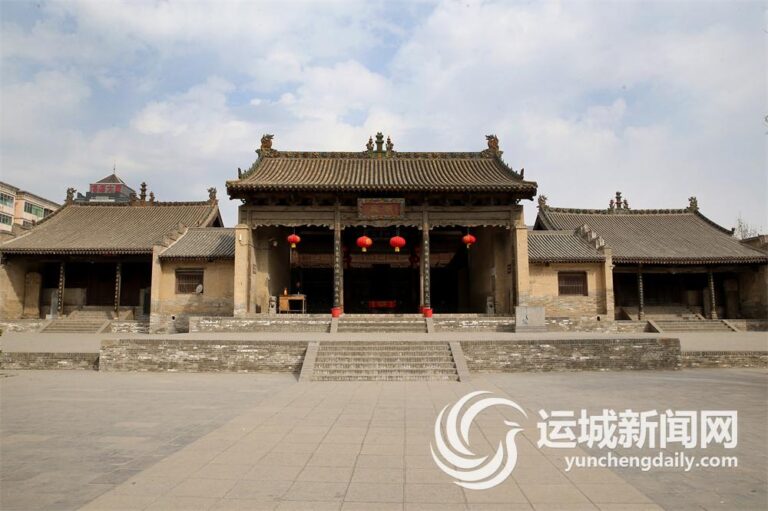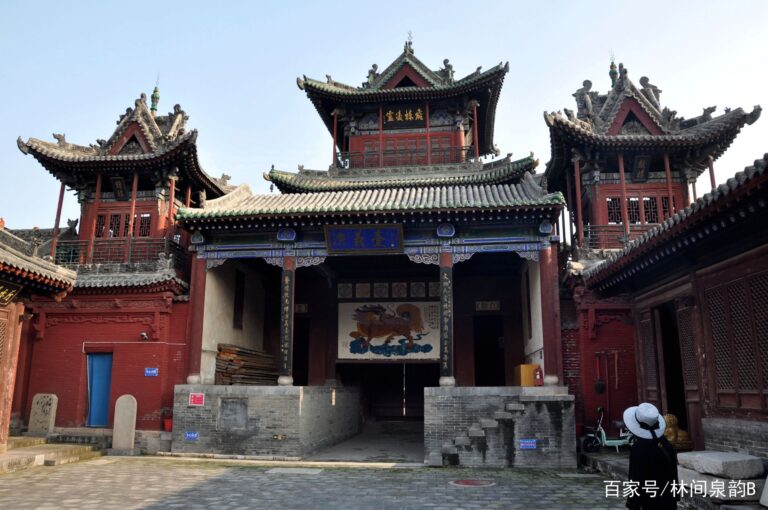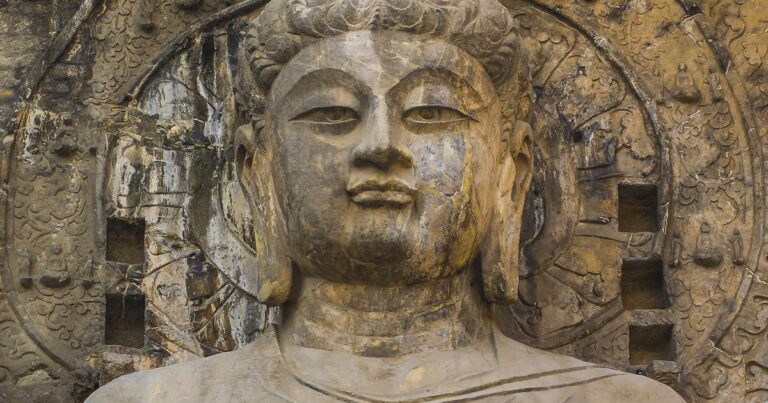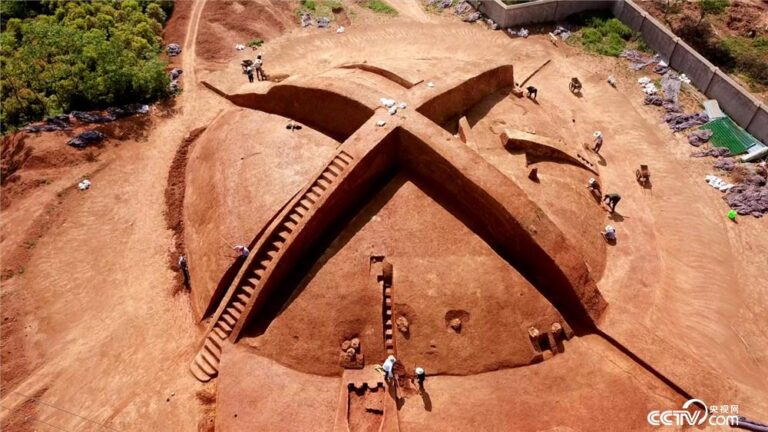A Journey Through Time: Exploring Yongzhou Lingling Wenwu Shuangmiao
An Essential Guide to Visiting Yongzhou Lingling Wenwu Shuangmiao
In This Guide
- An Essential Guide to Visiting Yongzhou Lingling Wenwu Shuangmiao
- The Rich History of Yongzhou Lingling Wenwu Shuangmiao
- Main Highlights: What to See at Yongzhou Lingling Wenwu Shuangmiao
- Planning Your Visit: A Practical Guide
- Tickets, Hours, and Booking
- How to Get There
- Local Cuisine and Accommodation
- Frequently Asked Questions
- Final Thoughts on Your Trip
Nestled in the heart of Hunan Province, Yongzhou Lingling Wenwu Shuangmiao, or the Twin Temples of Literature and Martial Arts, stands as a testament to the rich cultural heritage and historical significance of the region. This enchanting site, located in the ancient city of Yongzhou, boasts over 2,200 years of history, making it a remarkable destination for those eager to explore China’s profound traditions.
The Twin Temples, dedicated to Confucius and the legendary warrior Guan Yu, serve as a vibrant reminder of the duality of Chinese culture—balancing scholarly pursuits with martial prowess. Visitors are invited to stroll through tranquil gardens, admire intricate architectural designs, and absorb the wisdom of the generations that have passed through these storied halls. The temples are not only places of worship but also cultural hubs where poetry, philosophy, and history converge, echoing the thoughts of renowned scholars and poets who once roamed these lands.
As you wander through this sacred space, you’ll find yourself enveloped in the serene atmosphere, guided by the whispers of ancient traditions. The surrounding landscape adds to the allure, with picturesque views of the lush hills and the gentle flow of the rivers that have inspired countless literary works over the centuries. For travelers seeking a deeper understanding of China’s past and present, Yongzhou Lingling Wenwu Shuangmiao offers an unforgettable journey into the essence of Chinese civilization.
The Rich History of Yongzhou Lingling Wenwu Shuangmiao
Yongzhou Lingling Wenwu Shuangmiao, also known as the Lingling Cultural and Martial Temples, is a site steeped in rich historical significance, reflecting over two millennia of cultural heritage in Yongzhou, China. The temples are located in the ancient city of Lingling, a region recognized as a cradle of Hu-Xiang culture, which has fostered numerous renowned figures throughout history.
The Lingling Cultural Temple, originally established during the early Song Dynasty in 1208, was dedicated to Confucius, embodying the values of education and moral integrity. Over the centuries, the temple has undergone multiple relocations and renovations, with the current structure dating back to 1775 during the Qing Dynasty. This impressive building features intricate stone carvings and ornate architecture that showcases the artistry and craftsmanship of its time, including a beautifully decorated Hall of Great Accomplishment crowned with yellow glazed tiles.
Adjacent to the Cultural Temple is the Martial Temple, honoring Guan Yu, a legendary figure revered for his loyalty and martial prowess. This temple serves as a testament to the importance of martial values and heroism in Chinese culture. Together, the Cultural and Martial Temples symbolize the harmonious balance of intellectual and martial virtues, which have been celebrated throughout Chinese history.
The combined site, recognized as the Lingling Cultural and Martial Temples, was designated a National Key Cultural Relic Protection Unit in 2013, highlighting its significance as a historical and cultural landmark. The temples not only serve as places of worship but also as a hub for cultural education, where visitors can engage with the philosophical teachings of Confucianism and the legendary tales of martial valor.
Visitors to Yongzhou can explore this historical site while also immersing themselves in the broader cultural tapestry of the region, which has been shaped by literary giants such as Liu Zongyuan and Huaisu. Their contributions to Chinese literature and philosophy resonate through the landscapes of Yongzhou, further enriching the experience of those who visit Lingling Wenwu Shuangmiao.
The Lingling Cultural and Martial Temples stand as a bridge connecting the past with the present, inviting travelers to reflect on the enduring legacies of wisdom and courage that continue to inspire generations. As you walk through the ancient halls and admire the carefully preserved artifacts, you are reminded of the profound cultural heritage that defines Yongzhou and its significance in the broader narrative of Chinese history.
Main Highlights: What to See at Yongzhou Lingling Wenwu Shuangmiao
Yongzhou Lingling Wenwu Shuangmiao, or the Dual Temples of Culture and Martial Arts, is a remarkable historical site that encapsulates the rich cultural heritage of Yongzhou. Nestled in the picturesque backdrop of this ancient city, the temples serve as a testament to the intertwining of Confucian and martial traditions in Chinese history. Here are the key highlights that make this destination a must-visit:
Historical Significance
The Lingling Wenwu Shuangmiao comprises two temples: the Wen Temple, dedicated to Confucius, and the Wu Temple, dedicated to the legendary general Guan Yu. Founded during the Song Dynasty, these temples have been pivotal in promoting Confucian values and martial loyalty. They stand as symbols of the philosophical and ethical foundations that have shaped Chinese society for centuries.
Architectural Marvel
The temples showcase exquisite traditional Chinese architecture, characterized by intricate woodwork, ornate decorations, and lush courtyards. The grandeur of the main hall, adorned with vibrant colors and detailed carvings, is particularly striking. Visitors can marvel at the harmonious design that reflects the aesthetic principles of ancient Chinese architecture.
Cultural Activities
Engage in cultural activities that bring the past to life. The site often hosts traditional performances, including martial arts demonstrations and classical music recitals, allowing visitors to experience the cultural vibrancy that these temples continue to inspire.
Scenic Surroundings
Set amidst serene landscapes, the temples are a perfect spot for reflection and relaxation. The surrounding gardens, filled with fragrant flowers and tranquil paths, provide a peaceful retreat from the bustling city life. Take a leisurely stroll and soak in the natural beauty that enhances the spiritual atmosphere of the temples.
Educational Opportunities
The Lingling Wenwu Shuangmiao offers educational programs and guided tours that delve into the historical and cultural significance of Confucianism and martial traditions. These initiatives are invaluable for those interested in understanding the philosophical underpinnings of Chinese culture.
Local Cuisine
Don’t miss the chance to savor local delicacies at nearby eateries. Yongzhou is known for its distinct culinary offerings, such as the famous Dong’an chicken and various rice dishes that reflect the flavors of Hunan cuisine. Enjoying a meal after a day of exploration adds to the overall experience.
Accessibility
Conveniently located within Yongzhou, the temples are easily accessible by public transport or private vehicles, making it an ideal stop for tourists exploring the area. The welcoming atmosphere of the site ensures that visitors feel connected to the rich heritage of this ancient city.
In summary, a visit to Yongzhou Lingling Wenwu Shuangmiao is not just an exploration of historical temples but a journey into the heart of Chinese culture and philosophy. Whether you seek knowledge, inspiration, or a peaceful escape, this destination promises a memorable experience.
Planning Your Visit: A Practical Guide
Practical Guide to Yongzhou Lingling Wenwu Shuangmiao
Visiting the Yongzhou Lingling Wenwu Shuangmiao, also known as the Lingling Twin Temples of Literature and Martial Arts, offers travelers a unique opportunity to immerse themselves in the rich cultural heritage of this historic region. This guide provides essential information to ensure a smooth and enjoyable experience at this remarkable site.
Getting There
Yongzhou is located in the southwestern part of Hunan Province, China, and is accessible via various means of transportation:
- By Train: The Yongzhou Railway Station connects to major cities like Changsha, offering convenient access to the region.
- By Bus: Numerous buses operate from nearby cities to Yongzhou, with local services available to Lingling.
- By Car: Renting a car or using a taxi is a flexible option for those who prefer to explore the area at their own pace.
Once in Yongzhou, the Lingling Wenwu Shuangmiao is situated within the ancient Lingling City, easily reachable by public transport or a short walk from local attractions.
Opening Hours
The temples are generally open to visitors year-round. However, it is advisable to check specific hours as they may vary seasonally or due to special events:
- Typical Opening Hours: 8:00 AM to 6:00 PM
- Best Time to Visit: Early morning or late afternoon for fewer crowds and a more intimate experience.
Admission Fees
Visiting the Lingling Wenwu Shuangmiao may involve nominal entrance fees. Here are the details:
- Admission Fee: Approximately 35 RMB per person (subject to change).
- Discounts: Reduced prices may be available for students, seniors, and group bookings.
Key Attractions
-
Lingling Literature Temple (Wen Miao): Dedicated to Confucius, this temple is a stunning example of traditional Chinese architecture, featuring intricate carvings and historical inscriptions. Visitors can explore the main hall and learn about the cultural significance of Confucian teachings.
-
Lingling Martial Arts Temple (Wu Miao): This temple honors legendary martial figures, showcasing artifacts and exhibits related to ancient Chinese martial arts. The architecture here reflects the strength and valor associated with its deities.
-
Cultural Performances: Look out for traditional performances and ceremonies held in the temple grounds, providing insight into local customs and history.
Nearby Attractions
- Yongzhou Ancient City: Wander through the charming streets, visit local shops, and enjoy the vibrant atmosphere filled with history and culture.
- Liangzi Street: Famous for its food stalls and local delicacies, it’s a great place to sample Yongzhou’s culinary offerings.
- Huai River: A scenic spot for leisurely walks and photography, especially during sunset.
Tips for Visitors
- Dress Code: Respectful attire is recommended when visiting temples. Modest clothing is appreciated.
- Photography: While photography is permitted, be mindful of signs indicating restricted areas, especially during ceremonies.
- Local Cuisine: Don’t miss trying local dishes, such as Dong’an chicken and blood duck, known for their unique flavors.
Accommodation
There are various accommodation options in Yongzhou, ranging from budget hostels to mid-range hotels. Popular choices include:
- Local Guesthouses: Experience traditional hospitality.
- Hotels: Look for options near Yongzhou Ancient City for easy access to attractions.
Final Thoughts
Exploring the Yongzhou Lingling Wenwu Shuangmiao offers not just a glimpse into the historical aspects of Chinese culture but also a serene atmosphere perfect for reflection and learning. Plan your visit to align with local festivals or events for a truly enriching experience. Enjoy your journey through the echoes of history and culture at this remarkable site!
Tickets, Hours, and Booking
When planning your visit to Yongzhou Lingling Wenwu Shuangmiao (零陵文武双庙), it’s essential to be informed about ticketing options to ensure a smooth and enjoyable experience.
Ticket Information
Admission Fees:
– Wenwu Shuangmiao (Cultural and Martial Temples): The entrance fee is 35 CNY per person. This ticket grants access to both the Wenwu Temple, dedicated to the literary figure Confucius, and the Martial Temple, commemorating the legendary warrior Guan Yu.
Discounts:
– Children, seniors, and students may be eligible for discounted tickets. It’s advisable to bring valid identification to avail of these reductions.
Opening Hours:
– Summer (April to October): 9:00 AM to 5:30 PM
– Winter (November to March): 9:00 AM to 5:00 PM
Location:
– The Wenwu Shuangmiao is conveniently located near the east gate of Yongzhou Ancient City, making it easily accessible for tourists exploring the area.
Payment Methods:
– Cash is widely accepted, and electronic payment methods (like Alipay and WeChat Pay) are also available for a more convenient transaction.
Additional Tips:
– To enhance your visit, consider joining a guided tour that often includes entrance fees and provides deeper insights into the cultural significance of the temples.
– Arriving early is recommended to avoid crowds and to take full advantage of the serene atmosphere surrounding the temples, especially during the morning hours.
By organizing your ticketing in advance, you can fully immerse yourself in the rich history and cultural heritage that Yongzhou Lingling Wenwu Shuangmiao has to offer.
How to Get There
Getting to Yongzhou Lingling Wenwu Shuangmiao (零陵文武双庙) involves a variety of transport options that cater to both local and international travelers. Here’s a detailed guide to help you navigate your way to this historical site in Yongzhou, Hunan Province.
By Air
If you are traveling from outside Hunan Province or from another country, the nearest major airport is Changsha Huanghua International Airport (CSX), located about 200 kilometers (124 miles) from Yongzhou. From the airport, you can catch a direct flight to Yongzhou Lingling Airport (LLG), which is approximately 15 kilometers (9 miles) from the city center.
By Train
Yongzhou is well-connected by rail, making it convenient to reach from major cities such as Changsha and Guangzhou. The Yongzhou Railway Station offers high-speed train services, and you can take a train to Yongzhou directly, which typically takes around 1.5 to 2 hours from Changsha. Once you arrive at Yongzhou Railway Station, you can take a taxi or a local bus to reach Lingling Wenwu Shuangmiao.
By Bus
For those already in Hunan Province, long-distance buses are available from various cities to Yongzhou. The Yongzhou Long-Distance Bus Station serves multiple routes, and the journey can vary from 2 to 4 hours depending on your departure point. Once you arrive at the bus station, local transportation options such as taxis and city buses can take you to Lingling Wenwu Shuangmiao.
Local Transportation
Once in Yongzhou, you have several options to reach Lingling Wenwu Shuangmiao:
-
Taxi Services: Taxis are readily available throughout the city. A taxi ride from the city center to the site typically costs around 20-30 RMB (approximately $3-5 USD) and takes about 15-20 minutes.
-
Public Buses: Yongzhou has a reliable public bus system. Buses frequently run to the Lingling area, and routes like 13, 31, and 303 will take you close to the site. Be sure to check local schedules for the latest information.
-
Car Rentals: For more flexibility, consider renting a car. Several local rental agencies can assist you, and driving gives you the freedom to explore the surrounding attractions at your own pace.
-
Bicycle Rentals: If you prefer an eco-friendly option, you might find bicycle rentals in the vicinity. It’s a pleasant way to explore the scenic areas around Lingling Wenwu Shuangmiao.
Accessibility
Lingling Wenwu Shuangmiao is designed to be accessible, with pathways suitable for visitors with mobility challenges. It’s advisable to confirm any specific accessibility needs with local service providers ahead of your visit.
Summary
Whether arriving by air, train, or bus, getting to Yongzhou Lingling Wenwu Shuangmiao is straightforward. With a mix of local transportation options available, exploring this historical site and the surrounding areas can be a delightful experience. Don’t forget to enjoy the beautiful scenery and rich cultural heritage along the way!
Local Cuisine and Accommodation
When exploring the historical riches of Yongzhou Lingling Wenwu Shuangmiao (零陵文武双庙), your gastronomic journey and lodging choices will enhance your experience of this ancient city, steeped in culture and tradition.
Culinary Delights
Yongzhou’s culinary scene boasts an array of local specialties that reflect the flavors of Hunan province. Here are some must-try dishes:
-
Dong’an Chicken (东安鸡): This iconic dish features tender chicken cooked in a spicy and tangy sauce made from local rice wine, chili, and a unique blend of spices. With its perfect balance of flavors, it’s a classic that shouldn’t be missed.
-
Blood Duck (血鸭): A regional delicacy, blood duck is prepared with duck blood, meat, and a variety of spices. The dish is renowned for its rich flavor and unique texture, often served alongside rice or noodles.
-
Hunan-Style Hot Pot: Perfect for those who enjoy a communal dining experience, Hunan hot pot allows you to select a range of fresh ingredients cooked in a spicy broth. It’s a fun, interactive way to enjoy the local flavors.
-
Forest Water Chestnut Cake (森林芡实糕): For dessert, try this unique cake made from fresh water chestnuts, offering a sweet and chewy texture that is a refreshing end to any meal.
You can find these dishes in various local eateries and restaurants around the ancient town, where the ambiance encapsulates the rich history of the region. Look for places that feature traditional decor to immerse yourself fully in the local culture while you dine.
Places to Stay
Yongzhou offers a range of accommodations that cater to different preferences and budgets, ensuring a comfortable stay as you explore the city:
-
Hotels Near Lingling Wenwu Shuangmiao: Several hotels are conveniently located within walking distance of the temple complex, providing easy access to the sights. Options such as the Yongzhou Huafeng Hotel and the Tingbo Hotel offer comfortable rooms with modern amenities and a touch of local charm.
-
Boutique Guesthouses: For a more intimate experience, consider staying at one of the boutique guesthouses in the old town. These often feature traditional architecture and decor, allowing you to experience the local lifestyle. Suan Li Xiao Zhu (酸梨小筑) is a popular choice among travelers for its cozy atmosphere and warm hospitality.
-
Eco-Friendly Stays: If you’re looking to immerse yourself in nature, explore options like Liuzi Street Eco Inn, where you can enjoy sustainable living practices while being close to the natural beauty surrounding Yongzhou.
-
Hostels for Budget Travelers: For those traveling on a budget, hostels like Yongzhou Youth Hostel offer affordable dormitory-style rooms, providing a great opportunity to meet other travelers while exploring the region.
Conclusion
Whether you indulge in the bold flavors of Yongzhou’s cuisine or relax in a welcoming accommodation, the experience will undoubtedly deepen your appreciation for the rich heritage of Lingling Wenwu Shuangmiao and its surroundings. Enjoy your culinary adventures and restful nights as you uncover the stories behind this ancient city.
Frequently Asked Questions
Frequently Asked Questions about Yongzhou Lingling Wenwu Shuangmiao (零陵文武双庙)
- What is Yongzhou Lingling Wenwu Shuangmiao?
-
Yongzhou Lingling Wenwu Shuangmiao, also known as the Dual Temples of Culture and Martial Arts, is a historical site located in the ancient city of Yongzhou. It comprises the Wen Temple, dedicated to Confucius, and the Wu Temple, honoring the legendary warrior Guan Yu. These temples showcase significant cultural and architectural heritage.
-
When were the Wen and Wu Temples built?
-
The Wen Temple was originally established during the Song Dynasty in 1208 and has undergone several renovations, with the current structure dating back to 1775. The Wu Temple was built in the following centuries, reflecting a blend of ancient and more recent architectural styles.
-
How do I get to Yongzhou Lingling Wenwu Shuangmiao?
-
The temples are located in Yongzhou, Hunan Province. You can reach them by public transportation, such as buses that travel from Yongzhou city center to the ancient city area. Alternatively, taxis and ride-sharing services are available for a more direct route.
-
Is there an entrance fee to visit the temples?
-
Admission to the Yongzhou Lingling Wenwu Shuangmiao complex is generally free. However, some specific areas or exhibitions within the complex might have a nominal fee, so it’s advisable to check in advance.
-
What are the opening hours for the Yongzhou Lingling Wenwu Shuangmiao?
-
The temples are open all day, allowing visitors to explore at their convenience. However, specific exhibits or guided tours may have set hours, typically from 9 AM to 5 PM. It’s best to arrive early to fully appreciate the site.
-
What can I see and do at the Yongzhou Lingling Wenwu Shuangmiao?
-
Visitors can explore the stunning architecture of both temples, learn about Confucian and martial traditions, and enjoy the beautiful surrounding gardens. There are also cultural performances and events held occasionally, showcasing local arts.
-
Are there any nearby attractions worth visiting?
-
Yes, the Yongzhou ancient city features several nearby attractions, including the historical Liuzi Temple, the picturesque Xu Xiake Ferry, and the scenic Huailong Tower. Exploring the ancient streets and local markets is also highly recommended.
-
What is the best time of year to visit Yongzhou Lingling Wenwu Shuangmiao?
- The best time to visit is during the spring (March to May) and autumn (September to November) when the weather is mild and pleasant. These seasons also offer beautiful natural scenery, enhancing your overall experience at the temples.
Final Thoughts on Your Trip
In the heart of Yongzhou, Lingling Wenwu Shuangmiao stands as a testament to the rich tapestry of history and culture that has woven itself into the fabric of this ancient city. As you wander through its storied halls and admire the intricate architecture, you will feel the echoes of the past come alive, inviting you to connect with the wisdom of the ages.
This site is not just a destination; it is a journey into the soul of Chinese heritage. The blend of Confucian and martial traditions represented in the Wenwu Temple reflects the deep respect for learning and valor that has shaped the region. Visitors are encouraged to explore not only its historical significance but also the surrounding natural beauty that enhances the experience.
As you conclude your visit, take a moment to reflect on the profound impact that places like Lingling Wenwu Shuangmiao have on our understanding of culture and identity. Whether you are an avid historian, a casual traveler, or someone seeking inspiration, this remarkable site promises to leave an indelible mark on your heart. Embrace the spirit of Yongzhou, and let the stories of its past guide you into a brighter future.
